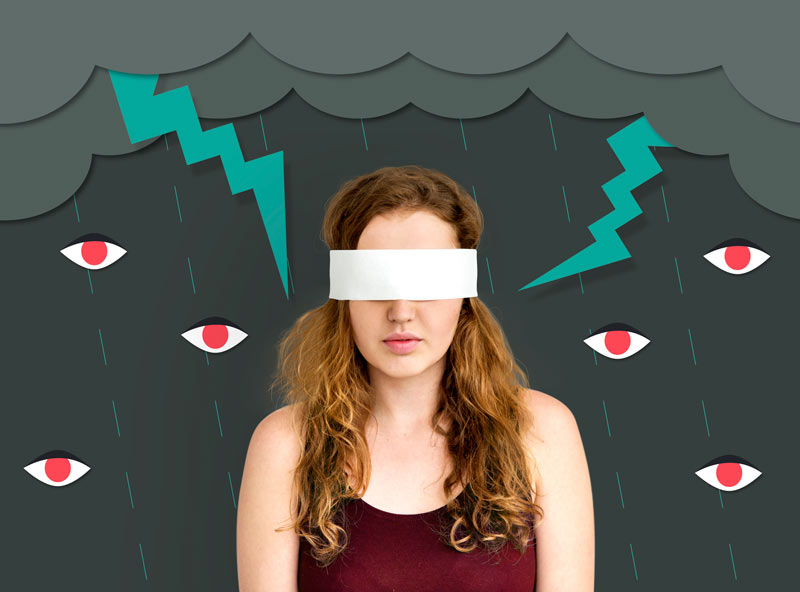Have you ever noticed someone close to you experiencing drastic mood swings? One day they’re energetic, outgoing, and full of life, and the next they’re withdrawn, hopeless, and consumed by negativity. These dramatic shifts in mood can be a sign of bipolar disorder, a complex mental health condition that affects millions of people worldwide. Learn here the 10 warning signs of bipolar disorder.
Find a therapist for bipolar disorder in Brooklyn today!

Understanding Bipolar Disorder: Basics and Types
Bipolar disorder is characterized by extreme mood swings that cycle between mania and depression. Bipolar I disorder is the most well-known form, characterized by distinct manic episodes that can last for a week or more and depressive episodes lasting at least two weeks. Bipolar II disorder involves hypomanic episodes (milder forms of mania) and depressive episodes. Cyclothymic disorder is a less severe form with rapid mood swings but not meeting the full criteria for a manic or depressive episode.
10 Signs of Bipolar Disorder
Timely identification is crucial for managing bipolar disorder effectively. Look out for these early symptoms:
- Mood Swings: Experiencing intense highs to extreme lows, which are more frequent and interfere with daily activities and sleep.
- Cycles of Depression: Experiencing cycles of manic and depressive episodes with symptoms like strong feelings of guilt, worthlessness, disinterest in previously enjoyed activities, and even thoughts of suicide.
- Risky Behavior: Engaging in risky behaviors during manic episodes, such as impulsive financial decisions, gambling, and reckless driving.
- Intense Multitasking and Energy: Experiencing a surge in energy and multitasking capabilities during manic episodes, which may seem like an abnormal increase compared to usual productivity levels.
- Grandiosity: Feeling an exaggerated sense of one’s importance or abilities, particularly prevalent during manic episodes.
- Talking Faster Than Normal: Experiencing changes in speech patterns, such as talking faster or louder than usual during manic episodes.
- Difficulty Concentrating: Struggling with concentration during both manic and depressive episodes, which can manifest as forgetfulness or an inability to focus on tasks.
- Extreme Irritability or Agitation: Feeling unusually irritated or agitated, which can also manifest physically as pacing or hand wringing.
- Irregular Sleep Patterns: Having difficulty sleeping or sleeping too much, which varies with manic or depressive episodes.
- Changes in Appetite: Experiencing changes in appetite, such as loss of appetite during manic episodes or increased appetite during depressive episodes.
Recognizing Manic and Depressive Episodes
Understanding what manic and depressive states look like can aid in recognizing bipolar disorder:
Manic Episodes
- High Energy and Euphoria: Overly joyful or euphoric feelings can quickly turn into extreme irritability.
- Decreased Sleep Need: Feeling rested after very little sleep is a common sign of mania.
- Grandiosity: Unfounded feelings of importance or power can appear during manic episodes.
- Impulsivity: Reckless behavior, such as spending sprees or impulsive decisions, are indicators of mania.
Depressive Episodes
- Pervasive Sadness: An overwhelming and continuous sense of despair characterizes depressive phases.
- Withdrawal: A marked loss of interest in life activities and social withdrawal are significant signs.
- Eating and Sleep Changes: Drastic changes in appetite and sleep patterns often occur during depressive episodes.
- Suicidal Thoughts: Thoughts of death or suicide are severe and immediate signs that require urgent care.
Physical and Behavioral Signs of Bipolar Disorder
Often, physical ailments such as unexplained pains or digestive issues accompany bipolar disorder. Changes in appetite or substance abuse can exacerbate the condition, and social withdrawal becomes more pronounced.
The Impact on Personal and Professional Life
Bipolar disorder can severely affect relationships and work stability, causing conflicts and difficulties in maintaining responsibilities.
When to Seek Professional Help
If you or someone you know is exhibiting these symptoms, consult a healthcare provider for a comprehensive evaluation. Early intervention is critical and can lead to a better quality of life.
Effective Management Strategies for Bipolar Disorder
While there’s no cure for bipolar disorder, combining medications, psychotherapy like cognitive behavioral therapy, and lifestyle adjustments can manage symptoms effectively. Regular routines and a supportive environment are vital.